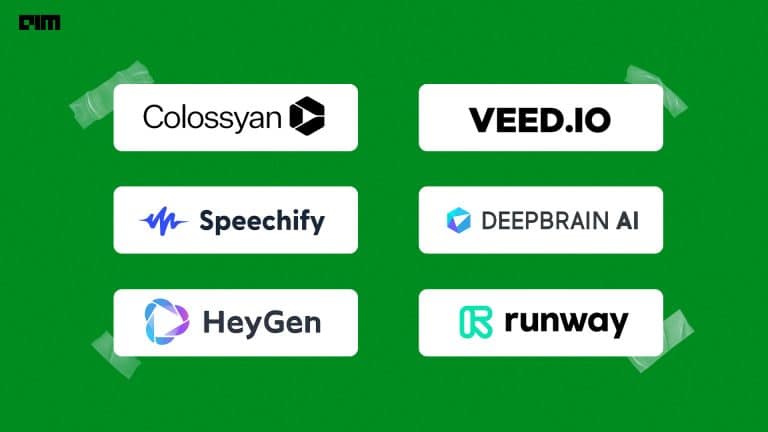|
Listen to this story
|
The pace of progress in AI over the past few months has been unprecedented with innovations occurring so rapidly that they have surpassed the typical ‘hype cycle’ associated with the technology. ChatGPT attained a meteoric rise, reaching 10 million users in record 40 days. To compare, it took Instagram nearly a year to achieve the same milestone.
While we are still grasping all the innovation that happened in the past few days, Microsoft recently unveiled a new model called ‘Visual ChatGPT’, which incorporates different types of Visual Foundation Models (VFMs) including Transformers, ControlNet, and Stable Diffusion with ChatGPT.
the speed of innovation using ai is breathtaking https://t.co/c3akv2Cmhs
— The Network Hub (@thenetworkhub) March 9, 2023
Also, the big story coming out of the rumour mills is that GPT-4 could be released next week. Of course, we cheer all the recent developments, but one must also contemplate the downside of the fast-tracked AI innovation.
When Microsoft announced integrating ChatGPT across its product line, Google came under immense pressure to counter it. What followed was a botched-up event in Paris, where Google announced Bard, a ChatGPT competitor. Bard made a factual error during the live event, costing Google more than USD 100 million in market cap.
Pressure to stay relevant
Google’s ‘Live in Paris’ event felt hastily arranged and unrehearsed where a majority of the presenters seemed nervous. Before announcing the updates, Prabhakar Raghavan, senior VP at Google Search, mistakenly mentioned the day as Search’s anniversary. Furthermore, Liz Reid, VP of engineering for Search, couldn’t present a demo of the new Lens feature due to her phone being misplaced.
Now, if OpenAI releases GPT-4 — the most advanced large language model thus far, in the coming days, it would again nudge Google into releasing something better. Interestingly, Google was working on technologies similar to ChatGPT for years, and even released a research paper in 2021. The Wall Street Journal reported that Google researchers were working on a conversational chatbot in 2018, almost four years prior to the release of ChatGPT.
However, the company did not release it to the public due to ‘reputational risks’. Such risks suddenly went out of the window after ChatGPT. With the high-speed innovation happening in AI, the company is under immense pressure as it battles with Microsoft for AI supremacy.
Similarly, internal memos have been circulating among employees at Meta urging the company to accelerate the process of approving AI technologies, according to the Washington Post.
‘Responsible AI’ Goes for a Toss
Besides reputational risk, another reason for Google to not release the chatbot technology earlier was that many in the company thought the product was not ready for a public launch. They wanted to adhere to their ‘Responsible AI’ principles. However, as things stand, those principles too went for a toss.
“A race to release generative AI means that models will probably be less tested when they come out. They’ll be ‘deployed’ publicly and companies will measure the blast radius and clean up afterward,” Annette Vee, associate professor at the University of Pittsburgh, said.
AI critic Gary Marcus, in a blog post, has also noted that tech companies today have failed to fully anticipate and prepare for the potential consequences of rapidly deploying next-generation AI technology.
If we take a look at Microsoft’s Responsible AI blog, it lists reliability, safety and accountability as its core principles in driving responsible AI. However, recent developments indicate otherwise. “Microsoft’s decision to release its chatbot likely with prior knowledge of disturbing incidents is one example of ignoring the ethical principles they laid out in the recent years,” Marcus wrote.
Researchers Feel the Heat
In an organisation, AI researchers and engineers form teams to publish papers documenting their findings, integrate their technology into the company’s current infrastructure, and create new products. Typically, this whole process takes time. Now, organisations are eager to bypass the whole process to bring newer products into the market sooner.
Further, the advent of ChatGPT could also bring a paradigm shift in way in which AI research is headed. Big organisations today want to be part of the AI fever and this could harm the multiple dimensions of AI research. According to a tweet by Karen Hao, a journalist with the Wall Street Journal, leaders in prominent companies are pushing researchers to develop or apply ChatGPT, even when it may not be directly applicable to the issues they are currently facing.
“I don’t think this is healthy for AI development. With the advent of deep learning, people were already concerned about the collapsing of the field around one technique. Now we’re seeing it collapse further around a single AI model. This complete lack of diversity cannot be good,” she said.
Former AI ethicist at Google, Alex Hanna, concurs with Karen. “The capture of a single method which is particularly data- and compute-hungry has intense negative effects. Now it’s just who can make the most specialised transformer and monetise the hell out of it,” Hanna said.
In a previous interaction with AIM, Hanna had said, “The big tech is currently too focused on language models because the release of this technology has proven to be impressive to the funding class—the VCs—and there’s a lot of money in it.”
Read more: Former Google AI Ethicist Calls Bard and alike ‘Bulls***’ Generators



















































































